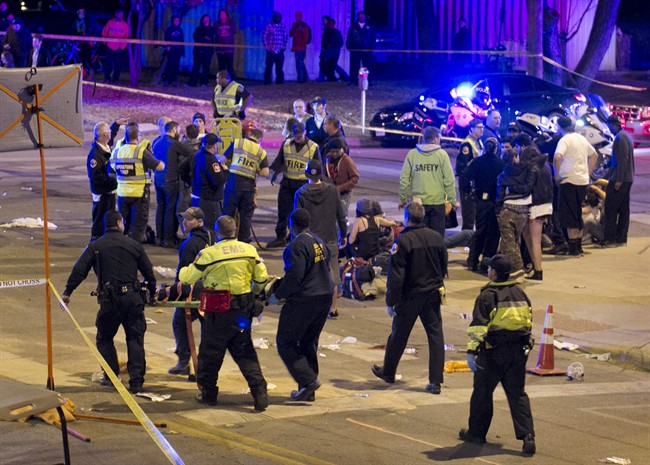TORONTO – At least four Canadian first responders have killed themselves since January 1, 2015, according to the Tema Conter Memorial Trust.

The organization tracks suicides among firefighters, police officers, paramedics, correction officers and other first responders. Thirty-four have killed themselves since April 29, 2014.
In response the province has promised a conference, details of which will probably be announced next month. NDP MPP Cheri DiNovo has been pushing a bill that would make it easier for first responders with post-traumatic stress disorder to qualify for WSIB compensation; Bill 2 recently passed second reading at Queen’s Park, where it received all-party support. The bill will now go to committee for debate.
Tema Counter Memorial Trust Director Vince Savoia said Canadians still face financial and cultural barriers when trying to access mental health care. And it’s no different for those expected to act as heroes in their day jobs.
“There’s not enough support at all. It’s not just the first responder community; it’s the mental health community as a whole in Canada,” he said.
“But it’s exaggerated within the first responder community because of that macho, type A personality where first responders see themselves as the fixers of the problem they’re attending to. And sometimes the realization that they won’t be able to fix what they were hoping to fix causes them to have that psychological concern.”
READ MORE: How to get help if you or someone you know has PTSD
Savoia says awareness and education can go a long way to combating PTSD and mental health issues within Canada’s community of first responders.
But the proposed legislative change would help, Savoia said.
“It’s months and months of psychological assessments, and ‘Prove to me that you’ve got PTSD because I don’t believe you,’” he said.
“So the system itself is really antagonistic and doesn’t provide the support that first responders need.”
READ MORE: Is there enough mental health support for first responders?
But Premier Kathleen Wynne offered scant solutions at a press conference Monday. She admitted provincial agencies need a “more sophisticated” response to PTSD but wouldn’t say what that might entail.
“I think we do need to have better responses on PTSD. But am I going to weigh into exactly what those mechanisms have to be? No, I’m not going to at this point,” she said. “But we do need to have more sophisticated understanding and responses to the PTSD that first responders may suffer.”
The Ontario government is in the final stages of planning a stakeholder’s summit for March as a result of a November report. That report, commissioned in 2012, outlined 14 recommendations but did not “evaluate or assess the feasibility of ideas discussed.”
Chief among those recommendations is changing the culture within first responder institutions, and “realistically” advertising jobs to ensure “recruits and young people are aware of the risks that they may face.”
If you, a family member or someone you know is having suicidal thoughts, or you believe they may be suffering from severe depression and/or anxiety, there are many organizations available to help including the Canadian Association for Suicide Prevention. A lengthy list can be found here.
– With files from Peter Kim and Alan Carter


Comments